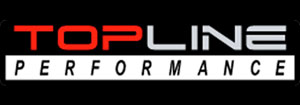Which Of The Differentials Is Best For Your Vehicle
If you are planning to improve the off road capabilities of your vehicle, you may visit an off road gear store to upgrade the differential of the vehicle to a locker or slip one. Most of the vehicles will be equipped with open differentials by default to keep the production cost low, while still offering better road manners to the vehicle. Even studies show that a big percent of the 4×4 vehicles never see a dirt track or go on a road trail ride.
Differentials are added to the axle of the vehicle to get more traction in conditions where one of the wheels can lose traction and start to spin. In fact, this is very common in vehicles with an open differential and is commonly called as a peg leg dance.
If your vehicle is not fitted with a locking or limited slip differential, the vehicle will lose the forward motion when one of the wheels loses traction and starts to spin. When one of the wheels is spinning, the wheel on the other side will sit idle. Apparently, having traction aiding differential fitted on the vehicle will not only help you on dirt, but also on pavements.
There are two types of differentials in general – limited slip differentials and locking differentials. Let us look into the advantages and disadvantages of both these types of differentials.
Advantages of Locking Differentials
- Offers complete two wheel drive per axle
- Does not require much servicing
- Very durable and increases traction greatly
- No axle, axle shaft, or ring and pinion modification required
Disadvantages of Locking Differentials
- Front locker makes steering of the vehicle difficult
- Leads to increased tire wear
- Can make driving in ice and snow more difficult
- Noise in operation
Advantages of Limited-Slip Differentials
- Offers enhanced traction in all weather conditions like snow and ice
- Tire wear is low when compared to locking differentials
- Silent operation and tires would not chirp
Disadvantages of Limited-Slip Differentials
- Can be weaker than locking differentials
- Does not lock the axles together fully
- Some of the limited slip differentials can pull side to side if used in front axle
So, which of the differential type is best for your vehicle? The answer to this question depends on the application of the vehicle. Indeed, choosing a differential is not a matter of which type of the differential is better, but it is about finding the one that best suits your needs.

